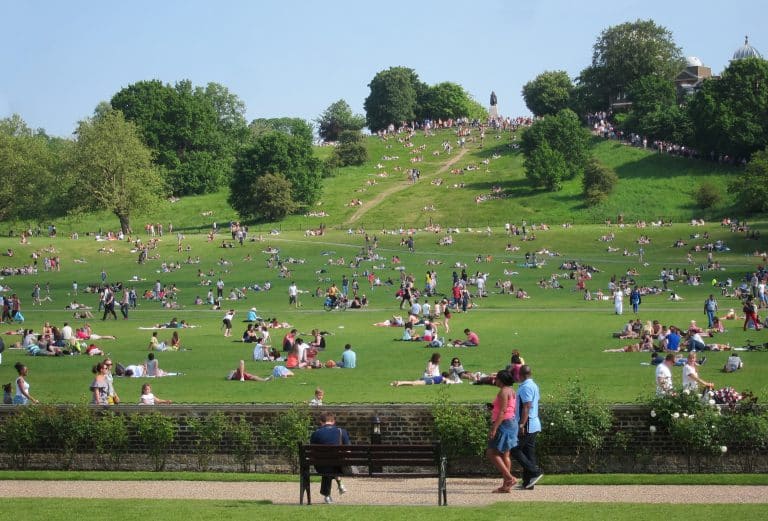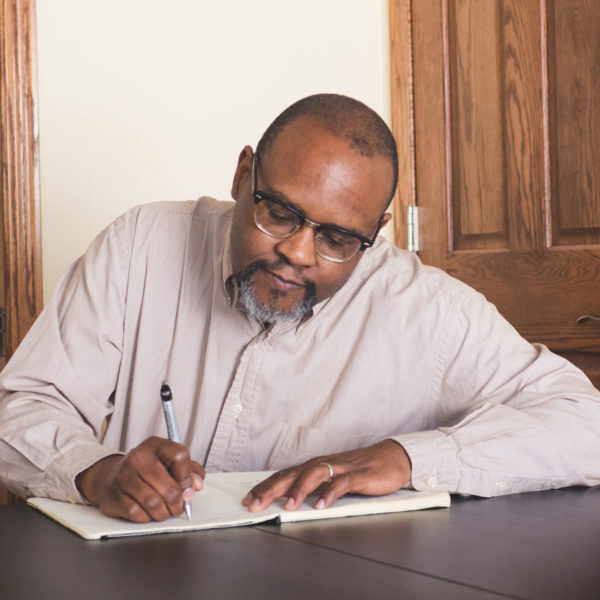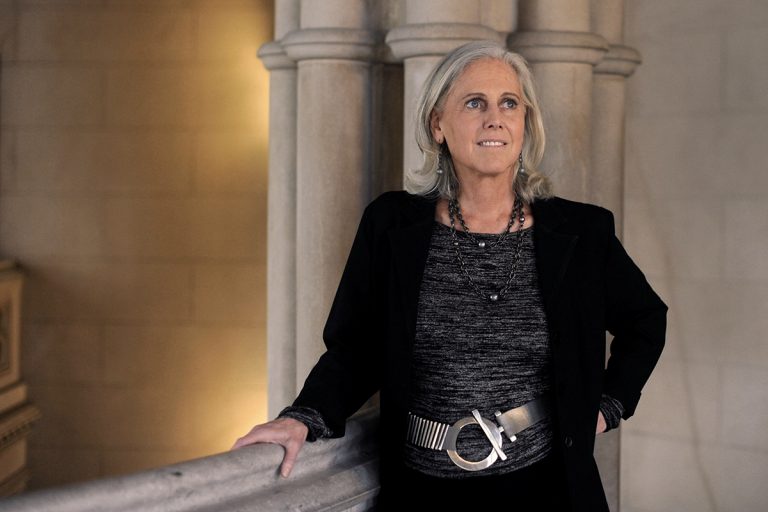
Image by Alan Stanton/Flickr, Public Domain Work.
The Problem with Simplicity
I stand at the sink, hold the shaver against my lathered cheek, and move my hand downward. A trio of blades glide across my face leaving a path of smooth skin in their wake. I swish the razor in a bathroom sink full of water, shaking the dead whiskers off in the blades, then repeat. Rinse. Repeat.
What could be simpler?
Running mid-morning errands, I sometimes hear Engines of Our Ingenuity, a weekday program that airs on a local NPR station. It describes itself as a “series about the machines that make our civilization run, and the people whose ingenuity created them.”
An episode a few months ago focused on simplicity. Referencing the old Shaker hymn, “Simple Gifts,” the show pointed to 14th-century philosopher William of Occam’s principle, known as Occam’s razor, that “Multiplicity ought not to be posited without necessity.” As an example, the episode traced the development of the safety razor:
For years, designers fought with the problem of loading, mounting, and unloading a blade in a holder. If you’re old enough, you’ll remember Shick’s “Push, pull, click, click” advertisement for its mechanism. Keeping the action workable, and the blade solidly in place, was a big problem. Then some bright person applied Occam’s razor to the razor-mounting problem. That designer realized you could simply mold the blade right into the plastic packaging. Now who buys replaceable razor blades? Instead, the blades are set, very solidly and with great precision, right into a cheap throwaway piece of plastic. We’ve designed blade-holding mechanisms out of existence.
It’s a commonplace that we live in complicated — not to mention chaotic — times. I know I’ve aspired to a considered simpler life for decades: in lifestyle, in discourse, in relationships intimate and communal and cultural and international, and maybe most of all in solutions to the problems and differences we face. Why can’t we be nicer to one another? Why can’t be more respectful of each other? Why can’t we just get along? It seems that it should be simple, even if not always easy.
But skepticism has always hovered around the edge of my aspiration.
Part of it has to do with how simplicity has become another commodity. The magazine about how to live simply arrives each month, thick on slick, glossy paper and packed with ads for expensive products I can purchase to simplify my life. Programs on television tout the simplicity of small but highly complex — and often expensive — houses. On other programs, I can follow the exploits of people moving to other countries to live simpler lives — so long as they can also have granite countertops, an open floor plan, large appliances, and easy access to high end restaurants and entertaining night life.
Another part of me gets stuck on details like that “cheap, throwaway piece of plastic” referenced in the Engines of Our Ingenuity episode. I’m old enough to remember the old razor mounts, though not old enough to have had to use them, and I don’t doubt that shaving for me is much easier than it was for my father and grandfathers — and my mother and grandmothers. No doubt the plastic cartridge makes my shaving life more convenient. But does that convenience translate into simpler living on the larger scale?
On the industrial level, cartridges spawned the need for new machines, production processes, designs, and materials, including more molded plastic parts. It multiplied the material that had to be discarded, material that generally ends up in landfills. The plastic cartridge or disposable shaver takes the work of mounting the blade out of my hands. But that convenience comes with a cost.
I realize now that often I use the word “simple” when I mean “efficient” (individually) or “convenient.” I think now that our culture encourages us to buy into that same equation more broadly. One magazine even touts “simplicity” as “life made easier.” Individually, it’s “simpler” (more convenient) for me to buy books, shoes, clothes, and even food online. I don’t have to go out or even get dressed. But the Internet of Things has cultural and economic implications that radiate outward.
I can remember, along with the old shaving mount commercials, another advertising campaign of my childhood. In those days, it wasn’t uncommon to see trash along the side of the roadway, much of it hurled out of car windows by people too much in a hurry and too unconcerned to wait until they reached a trash can in a rest stop or town.
Simply throwing trash out the window made so much individual sense. You didn’t have to look at it; you didn’t have to smell it for miles as it decayed; you didn’t have to hunt for a place to discard it. You just tossed it. Out of sight, out of mind.
The littering ad campaign made the case that life isn’t simple, that individual actions we take to increase our convenience can collectively have disastrous consequences for humans, other species, and the planet as a whole.
So much of the simplicity I’ve yearned for amounts to submerging complex problems, questions, and consequences so that I don’t have to see them, so that someone else deals with them. When I conflate “simple” with “convenient,” I can easily fetishize simplicity and forget that the simple lifestyle our ancestors lived — and that billions still live — often involved labor.
My household appliances cut the drudgery of washing dishes and laundry, and for people with disabilities, some technologies are necessities that make life infinitely richer and more productive. But I shouldn’t forget the impact my conveniences have on other people, close and distant, whether those conveniences are economic, material, social, or political.
And this tendency to grab for quick and simple fixes can also infect the way I look at social and political problems. Whenever I hear, “Why do you always have to make everything about (misogyny, racism, ableism, poverty, social justice, etc.)?” I can so often translate it into, “Why are you trying to make visible the complexity I don’t want to deal with, the mess I don’t want to clean up?”
I need to remind myself that I occupy a place in endless circles of interlocking systems: Social systems, ecosystems, political systems, global, and cosmic systems.
I’m beginning to understand that the simplicity I seek isn’t lurking in a catalog, store shelf, neighborhood, or website. It’s a state of mind I want. It’s a freedom from the clutter of complexity. And that, too, is an illusion.
Intellectually, I want the convenience of certainty about how the world works. I want the ease of stable categories that I can use to sort people and experiences and actions into bins of good versus bad, right versus wrong. But the bins aren’t airtight.
I don’t mean that I never make those distinctions; I mean that those categories don’t stay clean or that solutions to problems don’t come without costs, and they often spawn new difficulties. Uncertainty is fundamental to existence.
When I’m honest with myself, I know that even my individual, internal motives are rarely simple. They combine emotion, calculation, desire, morality, love, animus, social perception, rationality, spirituality, ego, and even self-deception.
For the better part of 20 years, I taught writing to first-year college students, and most of them wanted to know the one format, the one sequence or process, the one formula or trick that would simplify all their writing tasks. My own approach evolved over those years, but eventually distilled down to this: Court complexity. Understand that what works in one situation won’t necessarily work in others, that what appeals to one reader will infuriate another. Of course, many of my students found this frustrating, especially initially.
Courting complexity doesn’t mean paralysis. But it does entail an awareness that within my “perfectly simple” attitudes and actions lie the seeds of unanticipated and unintended consequences. Courting complexity means figuring out how to live with that.
People, societies, and life aren’t simple. I can pretend otherwise, but eventually that “throwaway piece of plastic” will rear its head.
Though it isn’t easy, when I accept complexity, the world becomes a surprisingly richer and more exciting place.

